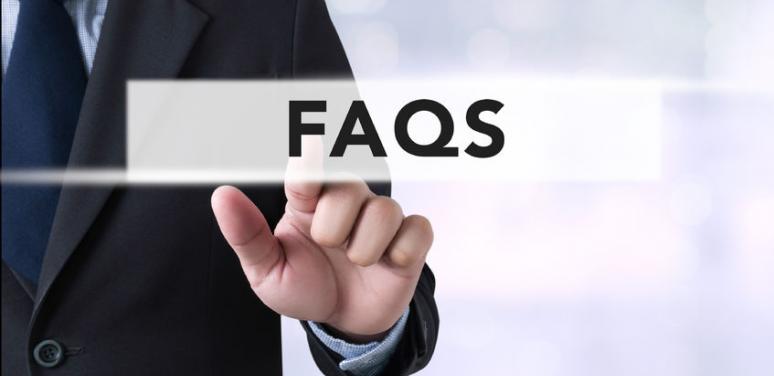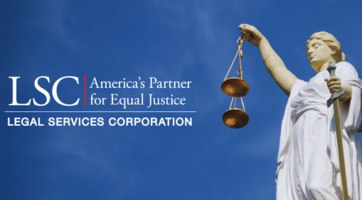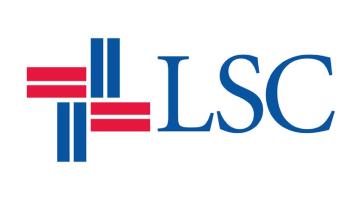Table of Contents
FAQS

FAQS or Frequently Asked Questions have been added to this website based on past questions submitted by private attorneys and the public in general. If you have a question about this site, please email the question to swlackey@gmail.com. If the question does not involve legal advice, the FAQ may be added to this page. You may review the FAQs below to see if a past question and answer is posted to this page.
Does this site provide legal advice? No, we do not provide legal advice through this site. We only provide legal information. For additional information, please read the Legal Disclaimer link located at the bottom of the "Home" page. You may also contact the legal aid program in your area and submit an application for assistance. However, you will have to qualify by income and/or legal problem.
How do I obtain legal assistance from one of the legal aid programs in Missouri? Go to the "Home" page of the website and click on the logo of the legal aid program in your area. You will find information on how to apply for legal aid at that website. Also, you may click on the “Offices” button on the "Home" page. You will go to a page where you can find the legal aid program in your area by the county you live in. You will be able to apply for legal aid by telephone.
If I need any help with this site how can I request assistance? If you need any help with this web site, please email us at swlackey@gmail.com. We will respond to you as soon as possible. Please note that we do not provide any legal advice by e-mail.
How do I make suggestions or comments about this website? You may make suggestions or comments by submitting them to the following email address: swlackey@gmail.com. Also, there is a feedback form located on many of the website pages.
Who posts articles to this site? Articles are posted from multiple sources. Missouri legal aid staff and private attorney volunteers provide many of the articles. Also, we accept articles from Missouri state and county offices, nonprofits, and only information that contains legal information. This website provides links to other federal, state and nonprofit organizations that provide legal information to the public. If there is a good article of interest to low-income people in Missouri, the committee will review and vote on the article. If any article or link directs the user to another website it will be noted in the article summary in front of the link. If you go to a link outside of this website you may return to this website by simply pressing the back button in your Internet browser. Please note that all articles and sites must be approved by the Missouri Legal Aid Statewide Web Committee before any article or site can be posted to this website.
How do I get a legal informational article posted to the site? If you would like a legal article posted to the site, please email the article you wish to add to swlackey@gmail.com. We prefer the article to be written in Microsoft Word as Word can be read in multiple foreign languages. We will accept an adobe document or a link to another site. If you have a graphic you would like added to an article, please submit it in a .jpg format. Please note, that we only accept articles or sites that provide legal information not just general information on a subject.
How is posted website content determined? Any site or article must be approved before it can be posted by the Missouri Legal Aid Statewide Web Committee.
What kinds of people are helped by legal aid? Missourians of all backgrounds and ages, including families, children, veterans, seniors, and ill or disabled people.
What kinds of issues are typically involved in legal aid? Legal aid provides access to legal help for people to protect their livelihoods, health, housing and families.
If you click on any of the links below you will be leaving this website.
Does legal aid just help the poor? Legal aid provides a range of services, some of which are available regardless of income. Because of very limited resources, legal aid providers typically can only represent the poorest of the poor – people who live in households with annual income at or below 125% of the federal poverty guidelines.
How does legal aid help? Legal aid helps ensure fairness for all in the justice system, regardless of how much money one has. Equal justice under law is a fundamental American value, engraved on the Supreme Court building and taught in classrooms across the country. Legal aid helps to fulfill this promise of justice for all, not just for the few who can afford it.
How is legal aid funded? Legal aid is funded by a variety of sources. Public funding comes from a congressional appropriation to the Legal Services Corporation, as well as grants from federal agencies. Some states and local governments also provide funding for legal aid. Private support comes from charitable donations and foundation grants as well as from the volunteer services of private lawyers, law students, and others.
Many middle-class families cannot afford a lawyer. How does legal aid help them? Legal aid can help ensure that everyone is treated fairly in the justice system, regardless of how much money one has. Legal aid serves Americans of all backgrounds and ages, including those who face the toughest legal challenges: children, veterans, seniors, ill or disabled people, and victims of domestic violence. Legal aid takes many forms, and middle-class families can access many resources such as online information and forms and court-based self-help centers.
What is the Legal Services Corporation (LSC)? How does it fit into the bigger picture of legal aid? LSC administers the federal government’s investment in legal aid. It is the largest single funder of civil legal aid, but it provides less than one-quarter of the total funding nationwide. LSC funds 134 independent nonprofit law firms. Every U.S. county and territory is included in an LSC-funded service area. These 134 LSC grantees are part of a larger set of several hundred nonprofit law firms, medical-legal partnerships, pro bono programs, court-based self-help centers, and others that comprise the legal aid sector.

